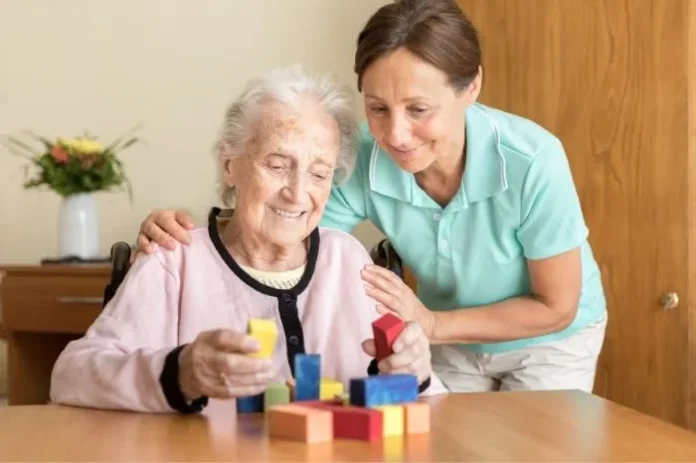Caring for someone with dementia is an act of self-sacrifice, love, and compassion. As the disease progresses, the mental, emotional, and physical demands on caregivers increase. It should be no surprise, then, that most caregivers experience some degree of burnout—a prolonged state of exhaustion that affects their well-being, health, and relationships.
Despite these difficulties, families don’t have to do it alone. Today’s dementia care options are there to support those suffering from cognitive decline and ease the burden on caregivers. Understanding these services and how they work is the first step to reclaiming compassion, hope, and balance in caregiving.
Caregiver Burnout: What Is It?
The exhaustion that comes with caregiver burnout doesn’t come overnight. It’s a gradual process that starts with skipped meals, missed sleep, and social isolation. With time, constant vigilance, insufficient respite, and emotional strain take their toll on caregivers’ emotional and physical health. The most common signs of burnout are:
- Feelings of resentment and hopelessness
- Chronic fatigue
- Increased anxiety and irritability
- Health problems
- Difficulty concentrating
Without ongoing support, caregiver burnout leads to life-altering consequences. That’s where dementia care comes in—it’s a supplement, not a replacement for family caregiving.
5 Ways to Reduce Caregiver Burnout
Professional dementia care resources are customized to meet the changing needs of people with cognitive issues. Whether it’s a day program, in-home care, or residential memory care, these resources offer specialized support for patients and families. In the sections below, we’ll explain how dementia care reduces caregiver burnout.
1. Respite Care Offers Relief
As the name suggests, respite caregivers offer temporary relief by stepping up when caregivers take much-needed time away. Even short breaks may:
- Improve caregivers’ mental health
- Reduce stress
- Strengthen relationships
- Reduce feelings of loneliness, resentment, and isolation
Whether it’s a few hours, a weekend, or a little longer, respite care services give family caregivers time to relax, recharge, and take care of their needs.
2. Education and Guidance
Dementia care teams consist of social workers, aides, therapists, and nurses, all of whom are trained to communicate effectively, manage difficult behaviors, and keep residents safe. When they learn how to de-escalate situations and maintain routines, caregivers feel less overwhelmed and more confident in their roles.
3. Counseling and Emotional Support
Many dementia care programs include support groups and counseling designed for caregivers. Talking to others or sharing creativity on the same journey may provide a sense of validation and connection, and it reminds caregivers that they’re not alone, no matter how lonely it may seem at times.
4. A Better Quality of Life for Residents and Families
When a person with dementia receives professional care, their quality of life improves. Most experience fewer episodes of agitation and confusion, and they have safer, more engaging daily routines. This lightens the load on caregivers who would otherwise struggle to meet their loved ones’ needs.
5. Caregivers Need Care, Too
If you’ve ever flown on an airline, you’ve heard the warning: put your oxygen mask on before helping someone else. The same concept applies to dementia caregiving—it’s impossible to pour from an empty cup. Seeking support isn’t a sign of weakness; it’s an act of compassion and love. By getting help, caregivers can protect their relationships and health without sacrificing the quality of care they provide.
You Aren’t Alone
If you care for someone with dementia and are feeling the burden of everyday responsibilities, help is available. Dementia care isn’t just for the diagnosed person; it’s for their family, too. Whether it’s through community resources or professional help, you deserve understanding, support, and rest. You don’t have to do it alone; we’re here to help. Call or click to learn more about our memory care services.





